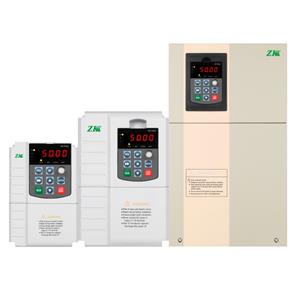Solar Pump Inverters: From Principles to Practice
Solar water pump inverters utilize cutting-edge photovoltaic (PV) technology to efficiently convert sunlight into electricity. When sunlight interacts with the solar panels, the semiconductor cells within the panels generate a direct current (DC) electrical output. This DC electricity is then transferred to the solar water pump inverter, where it is converted into alternating current (AC) that is suitable for powering the water pump.
The solar water pump inverter plays a critical role in this process by transforming the variable DC output of the solar panels into a stable AC output that matches the required frequency and voltage of the water pump. Through the use of advanced power electronics and control algorithms, the solar water pump inverter ensures the smooth operation and efficiency of the entire pump system.
Practical Applications of Solar Water Pump Inverters
Agricultural Irrigation: Solar water pump systems with inverters are extensively used in agricultural irrigation systems to deliver a reliable and sustainable water supply for crops. By leveraging solar energy, farmers can reduce their dependence on grid electricity and fossil fuels, resulting in both cost savings and environmental advantages.
Livestock Watering: Solar water pump systems with inverters also find application in providing livestock watering solutions in remote regions with limited access to electricity. These systems guarantee a consistent water supply for animals, ultimately enhancing their health and productivity without the need for grid power.
Domestic Water Supply: In off-grid or remote areas, solar water pump systems with inverters can be deployed to offer domestic water supply solutions. These systems can extract water from wells, boreholes, or other sources to meet the daily water requirements of households, diminishing reliance on conventional water supply methods.
Community Water Projects: Solar water pump systems with inverters are utilized in community water projects to furnish clean and sustainable water access to marginalized populations. These projects promote water security, sanitation, and hygiene practices, thereby contributing to enhanced health and well-being.
Water Conservation: By utilizing solar energy to energize water pumping systems, solar water pump systems with inverters actively support water conservation initiatives. These systems function efficiently without necessitating non-renewable energy sources, thus aiding in reducing carbon emissions and environmental impact.
In conclusion, solar water pump inverters are instrumental in converting solar energy into mechanical energy for water pumping applications. By comprehending the principles and practical uses of these systems, individuals and organizations can implement sustainable water pumping solutions that are efficient, cost-effective, and environmentally friendly. Embracing solar water pump technology can yield positive impacts on agriculture, livestock management, domestic water supply, community development, and water conservation efforts.




